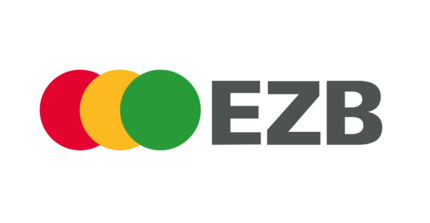Effectiveness of virtual academic tutoring in increasing passing rates of critical subjects: a study in technical careers
DOI:
https://doi.org/10.5281/zenodo.16654538Keywords:
virtual academic tutoring, higher technical education, critical subjects, academic performanceAbstract
This study examined whether an online academic tutoring program helped more students pass difficult subjects in technical programs in Peru. To do so, we compared the performance of two groups of students from technical institutes in Lima (38 in each group). One group received online tutoring for one semester, while the other continued studying as usual, without the help. The results showed that the group with online tutoring passed more, had better grades, and was happier than the other group (the difference was statistically significant, p<0.05). This demonstrated that the online tutoring was effective, especially in math and technical English. Therefore, we conclude that offering organized online tutoring programs is a good way to reduce the number of students who fail difficult subjects. We recommend that it become routine in high schools and that teachers be trained to be effective online tutors.
Downloads
References
Casas-Rojas, M. (2021). Caracterización de asignaturas críticas en la formación técnico-profesional peruana. Revista Peruana de Educación Superior, 8(2), 147-163. https://doi.org/10.15381/rpes.v8i2.19487
Cuenca, R., & Vargas, J. (2020). Desigualdad digital en tiempos de pandemia: El caso peruano. Revista de Sociología de la Educación-RASE, 13(4), 464-480. https://doi.org/10.7203/RASE.13.4.18025
García-Valcárcel, A. (2019). Modelo de tutoría integral en educación superior: Fundamentos y aplicaciones. Magisterio Editorial.
Garrison, D. R., & Arbaugh, J. B. (2022). Presencia docente y social en entornos educativos virtuales: Revisión y perspectivas futuras. Computers & Education, 178, 104406. https://doi.org/10.1016/j.compedu.2022.104406
Guadalupe, C., León, J., Rodríguez, J., & Vargas, S. (2018). Estado de la educación en el Perú: Análisis y perspectivas de la educación básica y superior. GRADE.
Gutiérrez, A., & Vásquez, L. (2020). Factores asociados al desempeño académico en institutos tecnológicos de Lima Metropolitana. Propósitos y Representaciones, 8(2), e559. https://doi.org/10.20511/pyr2020.v8n2.559
Hernández, R. y Mendoza, C. (2018). Metodología de la investigación: Las rutas cuantitativa, cualitativa y mixta. McGraw-Hill.
Hernández-Sánchez, A., & López, D. (2020). Tutorías virtuales vs. presenciales: Un análisis comparativo de la efectividad en entornos universitarios. Revista Iberoamericana de Educación a Distancia, 23(1), 169-190. https://doi.org/10.5944/ried.23.1.25495
Instituto Nacional de Estadística e Informática [INEI]. (2019). Indicadores de educación por departamentos, 2008-2018. INEI.
Lobato, C., & Guerra, N. (2023). Modelo de tutoría dual para la formación profesional: Presencialidad y virtualidad en la educación técnica post-pandemia. Revista Educación XXI, 26(1), 319-342. https://doi.org/10.5944/educxx1.32006
Martínez, P., Pérez, J., & Martínez, M. (2019). Aplicación de los modelos de gestión de calidad a la tutoría universitaria. Revista Complutense de Educación, 30(1), 145-163. https://doi.org/10.5209/RCED.56034
Ministerio de Educación del Perú [MINEDU]. (2020). Política Nacional de Educación Superior y Técnico-Productiva. MINEDU.
Morales-Castillo, J. D. (2021). Factores asociados a la reprobación en carreras técnicas del Perú: Un análisis multidimensional. Revista Digital de Investigación en Docencia Universitaria, 15(1), e1347. https://doi.org/10.19083/ridu.2021.1347
Rodríguez-Ponce, E., Pedraja-Rejas, L., Araneda-Guirriman, C., & Rodríguez-Ponce, J. (2022). La tutoría virtual como estrategia para mejorar el rendimiento académico en universidades latinoamericanas. Formación Universitaria, 15(1), 73-84. https://doi.org/10.4067/S0718-50062022000100073
Salazar-Mendoza, G. (2018). Efectividad de un programa piloto de tutoría semipresencial en un instituto técnico de Arequipa. Yachay: Revista Científico Cultural, 7(1), 316-326.
Siemens, G. (2019). Conectivismo: Una teoría del aprendizaje para la era digital revisitada. Innovación Educativa, 19(79), 99-132.
Torres, A., & Quevedo, E. (2021). Multidimensionalidad de la problemática de asignaturas críticas en la educación técnica: Un enfoque ecológico. Revista Peruana de Investigación Educativa, 13(1), 83-104. https://doi.org/10.34236/rpie.v13i1.245
Vygotsky, L. S. (1978). Mind in society: The development of higher psychological processes. Harvard University Press.
Published
How to Cite
Issue
Section
License
Copyright (c) 2025 Arbitrated Journal of Contemporary Education

This work is licensed under a Creative Commons Attribution-NonCommercial-NoDerivatives 4.0 International License.
















